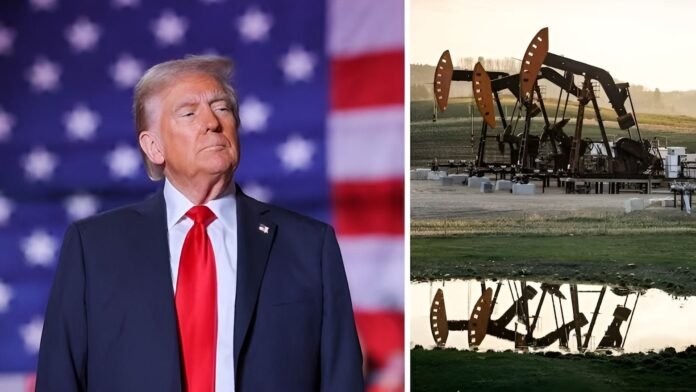U.S. oil prices rose after trade adviser Peter Navarro criticized India’s purchases of Russian crude, linking them directly to Moscow’s war funding. Navarro argued that India must end the practice, as it provides Russia with vital dollar revenues. His comments immediately drove market reactions, lifting both Brent and West Texas Intermediate benchmarks.
Brent crude gained to $66.15 a barrel, while West Texas Intermediate climbed to $63.18. Analysts noted that Navarro’s remarks reignited concerns about supply flows and geopolitical friction. As a result, U.S. oil prices became the focal point for traders monitoring energy markets.
Navarro said India acts as a global clearinghouse for Russian oil. He explained that embargoed crude is refined and re-exported, generating much-needed income for Moscow. The statement intensified debate in Washington and underscored growing tension between global trade and U.S. foreign policy goals.
Traders also watched for signals from a key meeting between U.S. President Donald Trump and Ukrainian President Volodymyr Zelenskiy. Energy markets remained sensitive to progress in peace negotiations. However, Trump’s position aligned closer with Moscow, urging Ukraine to drop its push to reclaim Crimea or join NATO. This stance added more uncertainty to the diplomatic landscape.
Ole Hvalbye of SEB commented that Navarro’s sharp criticism of India and postponed trade talks amplified worries over supply security. Priyanka Sachdeva of Phillip Nova agreed, noting that energy flows remain hostage to diplomatic frictions despite talks of peace.
Meanwhile, Saxo Bank strategist Ole Hansen said markets have not fully priced in a potential peace dividend. He warned that any breakthrough could trigger weaker prices in Europe, yet short positions in WTI futures leave room for sudden rallies. This volatility keeps U.S. oil prices vulnerable to political statements and market speculation.
Beyond geopolitics, investors focused on U.S. Federal Reserve Chairman Jerome Powell’s upcoming comments at Jackson Hole. His signals on interest rate policy could shift demand expectations for energy and affect broader market confidence.
Overall, U.S. oil prices remain highly sensitive to diplomatic tensions, trade disputes, and financial policy signals. Washington’s criticism of India’s Russian imports highlighted how quickly global energy markets can react to political developments.
For more business updates, visit DC Brief.


